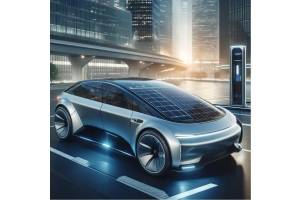Apple's Strategic Advances in AI Chips and iPad Technology Apple is making significant strides with the development of its own AI server chips, utilizing TSMC's cutting-edge 3nm process technology, expected to enter mass production in the latter half of 2025. This move is part of Apple's ongoing efforts to vertically integrate its supply chain, aiming to boost performance and efficiency with hardware that is tailored specifically to its software needs. Additionally, Apple faces challenges with its latest iPad Pro launch. The anticipated 11-inch model, equipped with an M3 chip and an advanced OLED display, might experience initial shortages due to supply constraints on OLED panels. These challenges stem from technical difficulties encountered by Samsung in manufacturing the innovative two-stack tandem structure panels, which could affect the product's availability in early May.
Xiaomi Prioritizes Domestic Market with New Automotive Strategies At an investor conference, Xiaomi’s CEO, Lei Jun, announced that the gross margin for the company's latest vehicle, the Xiaomi SU7, is projected to be between 5% and 10%. The company is intensifying its focus on the domestic market over the next three years, planning to expand its smart driving team from 1,000 engineers to 2,000 by the next year. Xiaomi's dedication to strengthening its market position in China highlights its strategy before considering international markets.
Qualcomm's Chip Design Innovations in India Qualcomm is capitalizing on the engineering talent in India by designing chips entirely within the country. With a substantial number of engineers in India compared to other global locations, Qualcomm is poised to support India's ambitions in semiconductor manufacturing. This initiative is further bolstered by a new design center in Chennai, marking Qualcomm's commitment to the "Make in India" and "Design in India" initiatives.
Tesla's Financial Performance and Optimus Robot Sale Plans Tesla's financial results have shown a downturn with a 9% decrease in revenue and a 55% drop in net profits in the first quarter of 2024. The company faced production challenges and external conflicts, impacting delivery and output. Despite these setbacks, Tesla is progressing with plans to commercialize its Optimus robot, potentially by the end of 2025. This humanoid robot is engineered to perform repetitive and hazardous tasks, utilizing Tesla’s expertise in AI and battery technology.





